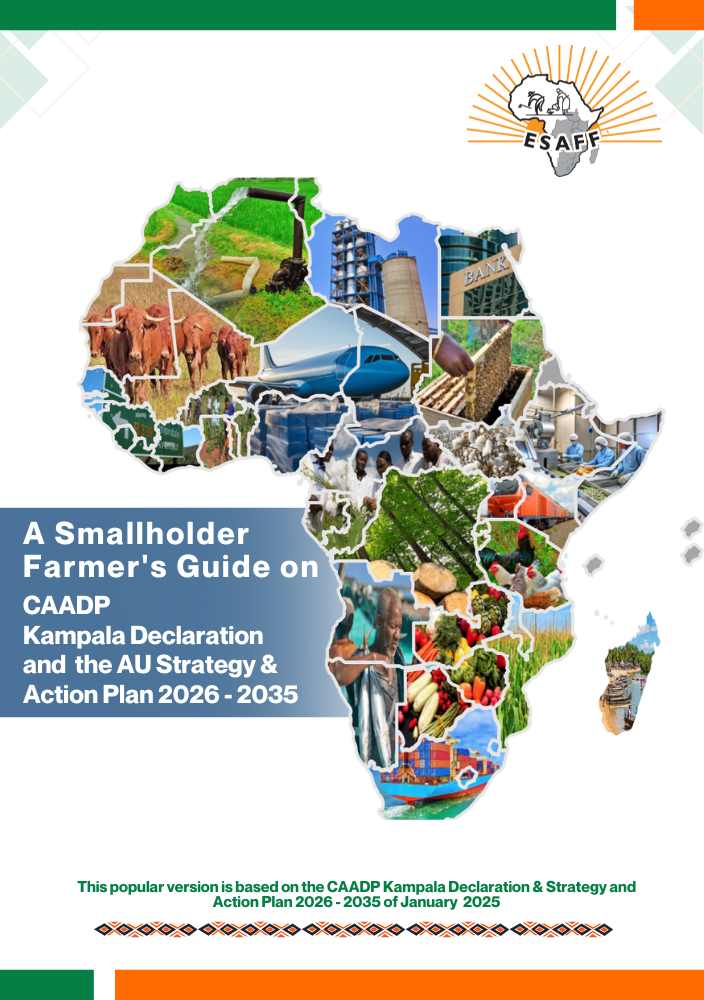A New Guide to the CAADP Kampala Declaration 2026–2035 Launched
In a landmark effort to make Africa’s agricultural transformation agenda more accessible to smallholder farmers, a new “Popular Version of the CAADP Strategy and Action Plan 2026–2035” has been launched. This simplified guide breaks down the commitments made under the CAADP Kampala Declaration, ensuring that farmers, policymakers, and stakeholders can engage effectively in implementing Africa’s vision for sustainable and resilient agri-food systems.
The Kampala Declaration, adopted in January 2025 by African leaders, sets out ambitious goals to enhance agricultural productivity, strengthen food security, improve market access, and promote climate-resilient farming practices. The newly launched farmer-friendly guide provides a practical roadmap for smallholder farmers, enabling them to understand how these commitments directly impact their farming activities, livelihoods, and communities.
According to Mr. Hakim Baliraine, Chairperson of the Eastern and Southern Africa Small-Scale Farmers Forum (ESAFF), “This guide is more than a document—it is an instrument of empowerment. It ensures that smallholder farmers, the backbone of Africa’s food production, are not left behind in shaping agricultural policies. By using this guide, farmers can track agricultural budgets, engage in policy discussions, and demand accountability at all levels.”
The Popular Version of the CAADP Strategy and Action Plan 2026 – 2035 provides insights into the six strategic objectives of the Kampala Declaration, covering areas such as:
✅ Sustainable food production and trade
✅ Investment in agrifood systems
✅ Food and nutrition security
✅ Inclusivity and equitable livelihoods
✅ Resilient agri-food systems
✅ Strengthened governance and accountability
A Call to Action
With this launch, stakeholders—including farmers’ organizations, policymakers, development partners, and civil society—are urged to embrace and utilize this guide to drive inclusive agricultural transformation across Africa.
The guide is now available for farmers, policymakers, and agricultural organizations to download and use as a reference for engaging in agricultural policy discussions and monitoring implementation at national and regional levels.
Download the document by clicking below
Download Now






















